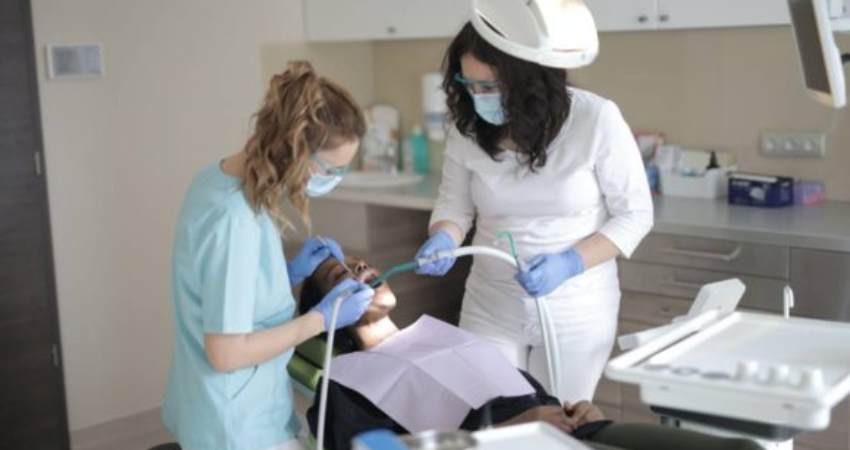Oral Care Specialists and Their Roles – When most people think about the dentist, they imagine someone who can fix their teeth when they’re broken. But dentists do much more than that! There are many different kinds of oral care specialists who each play a vital role in keeping your mouth healthy. Below is a list of the most common specializations you may encounter at the dentist’s office:
Table of Contents
Dentist
A dentist is a specialist in oral health. Dentists can perform several procedures, such as fillings and root canals, as well as crowns and bridges. They also have training that allows them to perform extractions when necessary.
Endodontists
Endodontists are specialists who treat the pulp and root of a tooth at the root canal in Canberra. They are also known as root canal specialists, and they perform root canals, crowns, bridges, dentures, and implants.
Endodontists can be found at hospitals or private practices; some endodontists work part-time in dental offices while others work solely with their patients at a single location.
Specialist
Specialists are dentists who have specialized training in a specific area of dentistry. This can be general dentistry, pediatric dentistry, endodontics (root canal treatment), periodontics (gum disease), or prosthodontics (reconstructing missing teeth).
Specialist treatments are usually more expensive than general dental care because they require additional education and training. However, they can be crucial to restoring your smile and oral health if you have serious problems with your teeth or gums that cannot be treated by a general dentist.
General Dentists
General dentists are the most common type of dentist you will come across. They have been trained to treat a wide range of dental problems and can provide routine dental care, as well as perform more complex procedures at the dental clinic in North Shore. General dentists usually provide:
- Routine checkups and cleanings
- Fillings or other restorative procedures (such as crowns)
- Extractions (tooth removal) if necessary
Orthodontist
Orthodontists are dentists who specialize in correcting the alignment of teeth and jaws. They work with children and adults, providing them with orthodontic treatment that may include braces, retainers, and other appliances. Orthodontic treatment is often necessary for people who have Crohn’s disease or another autoimmune disorder because it can help minimize damage to their teeth as well as improve their ability to eat properly by reducing pain or discomfort when chewing food (which may be difficult due to inflammation).
Pediatric Dentists
Pediatric dentists like this St. George family dental have specialized training in treating children’s teeth and gums, as well as orthodontic problems. They can also provide advice on how to prevent dental problems in children.
As a result of their expertise, pediatric dentists are often the first dentist a child sees. If you’re looking for an excellent dentist for your child’s first visit or checkup, look no further than a pediatric dentist!
Prosthodontist
Prosthodontists are dentists who specialize in the restoration of teeth, including crowns, bridges, dentures, and dental implants. They can also help with facial pain and TMJ disorders.
Prosthodontists must complete four years of college (typically a bachelor’s degree) followed by four years at dental school. After graduating from dental school they must pass national boards to become licensed as a general dentist before continuing their training to become prosthodontists.
Conclusion
As you can see, there are many types of oral care specialists. The most important thing to remember is that they’re all working toward the same goal: to help you keep your teeth and gums healthy. If you’re unsure which type of specialist is right for your needs, talk with your dentist or another trusted professional who knows about these things. They will be able to help guide you through the process of making an appointment with the right person for your dental needs! Oral Care Specialists and Their Roles

